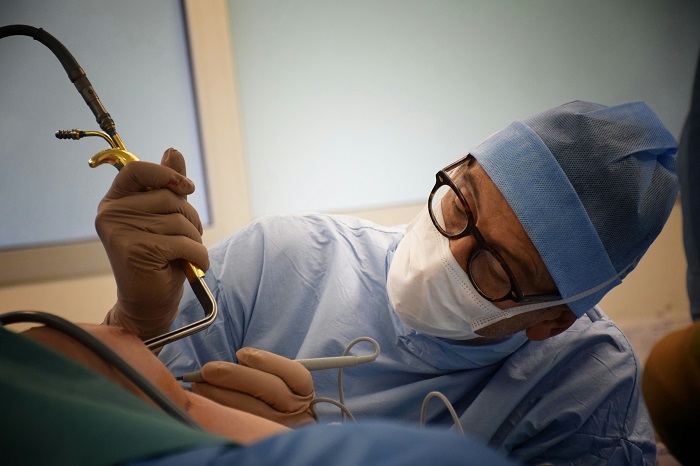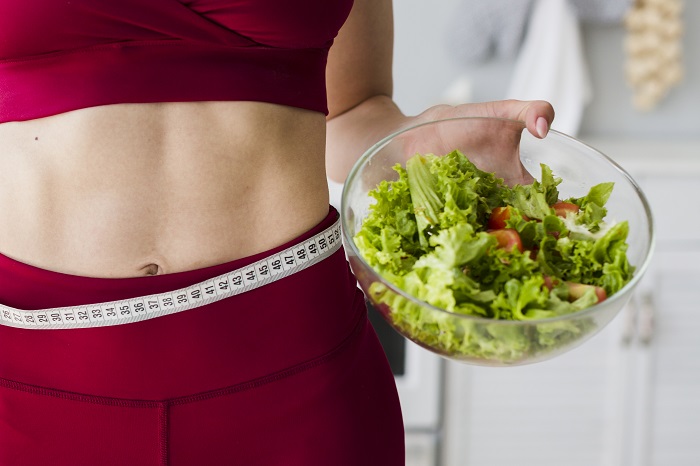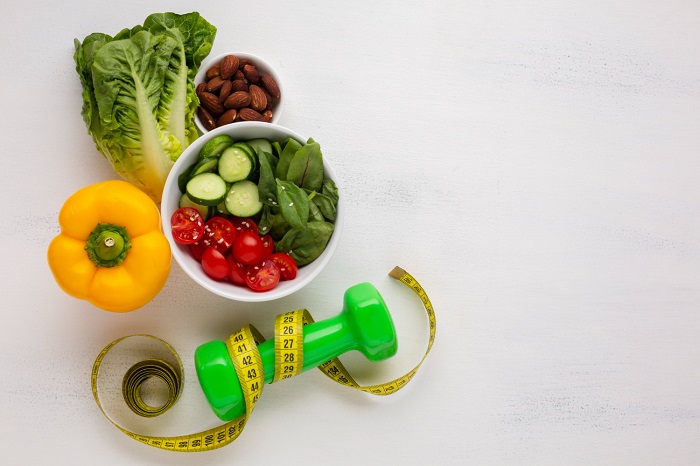Preparing for weight loss surgery is a big step towards a healthier life. To ensure the best outcome, a disciplined 6-month diet plan is essential. This guide will walk you through everything you need to know about the 6-month diet before weight loss surgery, from preparation to post-op recovery. By following these steps, you can increase your chances of a successful surgery and long-term weight loss.
Preparing for Weight Loss Surgery

Getting ready for weight loss surgery involves more than just scheduling the procedure. You need to prepare both your body and mind for the changes ahead. This includes understanding the surgery, undergoing medical evaluations, seeking nutritional counseling, and setting realistic goals. Educate yourself about the process, build a support network, and start making small lifestyle changes to set a strong foundation for success.
Why a 6-Month Diet Before Weight Loss Surgery?
A 6-month diet before weight loss surgery is crucial for several reasons. It helps prepare your body for surgery, reduces risks, and sets the stage for long-term success. This diet period helps you lose some weight before the operation, making it safer and improving your heart and lung health. It also teaches you new eating habits, shrinks the liver to make the surgery easier, and prepares you mentally for the significant lifestyle changes ahead. Additionally, it helps you meet insurance requirements and build a support network.
Nutritional Guidelines for the 6-Month Diet

Eating the right foods during the 6 months before your weight loss surgery is vital. Here are some key guidelines:
- Prioritize Protein: Protein helps build and repair tissues.
- Eat Small Meals Often: This keeps your energy levels stable.
- Stay Hydrated: Drinking enough water aids digestion.
- Limit Added Sugar: Reducing sugar intake helps prevent weight gain.
- Eat Mindfully: Pay attention to why you are eating, such as emotional triggers.
Foods and Habits to Avoid During the 6-Month Diet
Certain foods and habits can hinder your progress during the 6-month diet. Avoid eating post-surgery portions, lying to your dietitian or doctor, forgetting exercise, and relying too much on protein shakes. High-fat, sugary, and high-carb foods should also be avoided, along with alcohol and high-fat foods. These changes will help you lose weight, improve your health, and prepare your body for surgery. Being honest with your healthcare team, incorporating exercise, and focusing on a balanced diet are key to success.
Incorporating Exercise into Your Routine
Regular exercise is an essential part of preparing for weight loss surgery. Start slowly, choose activities you enjoy, set realistic goals, and mix up your exercises to keep things interesting. Making exercise a habit, staying safe, and tracking your progress are also important. Consider working with a fitness professional for personalized guidance and make exercise a social activity by involving friends or joining groups. Consistency is key, so aim to be active most days of the week to boost your metabolism and overall health.
Final Preparations: The Last Few Weeks
As your surgery date approaches, focus on specific steps in the final weeks to ensure you’re fully prepared. Avoid high-fat, sugary, and high-carb foods two weeks before surgery, and stick to a clear liquid diet in the final week. Discuss your medications and supplements with your doctor, maintain light physical activity, and prepare mentally by leaning on your support system and managing stress. Make sure your home is ready for recovery, attend your pre-op appointment, and follow fasting guidelines provided by your surgeon.
Post-Op Diet After Bariatric Surgery
After your weight loss surgery, your diet will go through several phases to help your body heal and adjust. Start with a full liquid diet, move to a blended or pureed diet, then transition to a soft diet before finally adopting a general diet. In each phase, focus on nutrient-rich foods, chew thoroughly, and stay hydrated. Avoid high-fat, high-sugar, and high-calorie foods. Take vitamins and supplements as recommended, attend follow-up appointments, and work with your dietitian to adjust your plan as needed.
The Importance of a Disciplined Diet

Maintaining a disciplined diet is crucial for the success of your weight loss surgery and long-term health. A disciplined diet helps your body heal, supports weight loss, prevents malnutrition, and builds healthy habits. It also increases energy levels, reduces the risk of weight regain, enhances quality of life, and supports mental health. Staying committed to your eating plan, following your healthcare team’s advice, and making adjustments as needed will help you achieve your weight loss goals and maintain a healthy lifestyle.
Seeking Support and Professional Guidance
Having the right support and professional guidance is essential for a successful weight loss surgery journey. Work with your healthcare team, attend support groups, seek counseling or therapy, and involve your family and friends. Online communities offer additional support and resources, while follow-up appointments with your healthcare team ensure you’re on track. Educate yourself about weight loss surgery and healthy living, and seek personalized guidance to create a plan tailored to your needs.
Reflecting on Your Weight Loss Journey
Reflecting on your weight loss journey helps you understand your progress, celebrate successes, and stay motivated. Recognize the significance of the 6-month diet, celebrate your achievements, and learn from challenges. Keep a journal to track your progress, stay connected with your support system, set new goals, and practice self-compassion. Commit to lifelong changes by embracing your new lifestyle, staying consistent with healthy habits, and prioritizing your health and well-being.
Detailed 6-Month Diet Plan
To give you a clearer picture, here’s a sample 6-month diet plan. Remember, it’s essential to consult with your healthcare provider before starting any diet.

Months 1-2: Establishing the Foundation
Breakfast: Greek yogurt with berries
- Start your day with a high-protein, low-sugar breakfast to keep you full and energized.
Lunch: Grilled chicken salad with a variety of vegetables
- Focus on lean protein and fiber-rich vegetables to promote satiety and nutrient intake.
Dinner: Baked fish with steamed broccoli and quinoa
- Incorporate healthy fats from fish and fiber from vegetables and grains.
Snacks: Nuts, seeds, or a piece of fruit
- Choose nutrient-dense snacks to keep your metabolism steady and avoid hunger pangs.
Months 3-4: Building Momentum
Breakfast: Scrambled eggs with spinach
- Eggs provide high-quality protein, while spinach adds essential vitamins and minerals.
Lunch: Turkey and avocado wrap with whole grain tortilla
- Whole grains and healthy fats from avocado make this a balanced and satisfying meal.
Dinner: Lean beef stir-fry with mixed vegetables
- Stir-frying retains nutrients and adds variety to your diet.
Snacks: Carrot sticks with hummus or a protein shake
- Protein shakes can be a convenient option for an extra protein boost.
Months 5-6: Final Preparations
Breakfast: Smoothie with protein powder, spinach, and almond milk
- Smoothies are versatile and can be packed with nutrients to start your day right.
Lunch: Tuna salad with whole grain crackers
- Tuna is a great source of lean protein, and whole grain crackers add fiber.
Dinner: Grilled tofu with a side of roasted sweet potatoes and asparagus
- Tofu is a good plant-based protein option, and roasted vegetables provide essential nutrients.
Snacks: Cottage cheese with pineapple or a handful of almonds
- Cottage cheese is rich in protein and calcium, making it a perfect snack choice.
Conclusion
The 6-month diet before weight loss surgery is a critical part of your journey to a healthier life. By preparing properly, following nutritional guidelines, avoiding harmful foods and habits, incorporating exercise, and seeking support, you set yourself up for a successful surgery and long-term weight loss. Reflecting on your journey helps you stay motivated and committed to maintaining the healthy habits you’ve developed. Embrace this comprehensive guide to make the most of your weight loss surgery and achieve your health goals.
Frequently Asked Questions
1. Why is a 6-month diet necessary before weight loss surgery?
A 6-month diet helps reduce surgical risks, shrink the liver, and improve overall health, making the surgery safer and more effective.
2. What should I eat on a 6-month diet before weight loss surgery?
Focus on a high-protein, low-carb diet including lean meats, fish, eggs, low-fat dairy, whole grains, fruits, and vegetables. Avoid sugars and high-fat foods.
3. How do gradual dietary changes benefit me before surgery?
Gradual changes help your body adjust smoothly, reduce overwhelm, and increase the likelihood of long-term success by building healthier habits.
4. Why is professional guidance important during the 6-month diet?
Professional guidance ensures your diet is safe, effective, and tailored to your individual needs, providing personalized advice and support.
5. What are the specific benefits of a 6-month diet before weight loss surgery?
Benefits include liver size reduction, improved surgical safety, enhanced post-surgery recovery, and establishing a foundation for long-term healthy eating habits.







